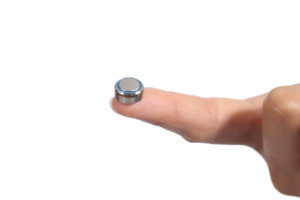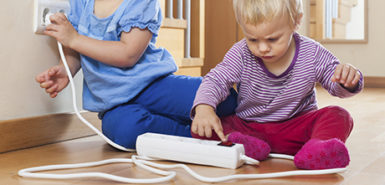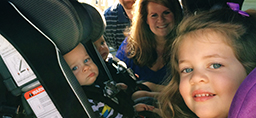
Look around your house. Looks safe, right?
Now look again. What do you see? Pill bottles. Detergent pods. Household cleaners.
These types of seemingly innocuous items can pose a real danger when children are in the picture.
Even though the number of children who have died from unintentional injury has declined by 29% in the past 10 years, it’s still the No. 1 cause of death of kids and teenagers.
Emergency rooms across the nation see preventable injuries every day.
The takeaway: Injuries can happen to any child in any home and in any place.
Sometimes that place is in your home. In fact, every day, six children in the United States die from unintentional injuries that occurred in their homes.
We asked Jennifer Hoekstra, a former injury prevention coordinator at Spectrum Health Helen DeVos Children’s Hospital, to weigh in on how to keep curious kiddos safe and avoid a trip to the local emergency room.
Here’s some expert advice:
Store carefully
Store household cleaning products out of sight—and out of reach. Cleaning supplies, bleach, detergent and soaps are often stored under the sink. Colorful detergent pods especially look appealing to kids, who mistake them for candy or toys.
Avoid eye-level placement of these dangerous products. If your kids can’t see them, they are less likely to be tempted to mess with them. Place cleaning supplies up high and out of sight.
Read labels
Many household products are toxic to kids, including makeup, plants and arts and crafts supplies. When you buy something for the first time, take a minute to read the label to see if you need to store it somewhere safe.
Watch medications
Everyone seems to be on some sort of medication these days, including vitamins. Keep these items in cupboards or medicine cabinets and far out of reach from little ones.
Watch your purse and bags
Think about the many things you carry around in your purse or briefcase. Curious children can easily reach into a bag left on a table or chair. Try using a spare bedroom or guest closet instead. Look for an upper-level shelf to store a guest’s bags.
Safely secure coin-sized batteries
Flame-less candles, greeting cards, handheld PDAs, scales and many other household devices all use small, button-sized batteries.
Secure these away. If a child gets hold of one of these, they can easily put it in their mouth and swallow it. Most of the time they won’t choke, and you’ll never know they swallowed something harmful. But within two hours, one of these batteries can burn your child’s esophagus. Keep these batteries in a basket, up high on a shelf.
Share this information
Pass this along to friends and family. Anyone who steps up to help look after your little ones should also follow these safety measures.
Know the poison control number
It’s 800.222.1222. Keep it posted somewhere visible in your home.
 /a>
/a>
 /a>
/a>
 /a>
/a>